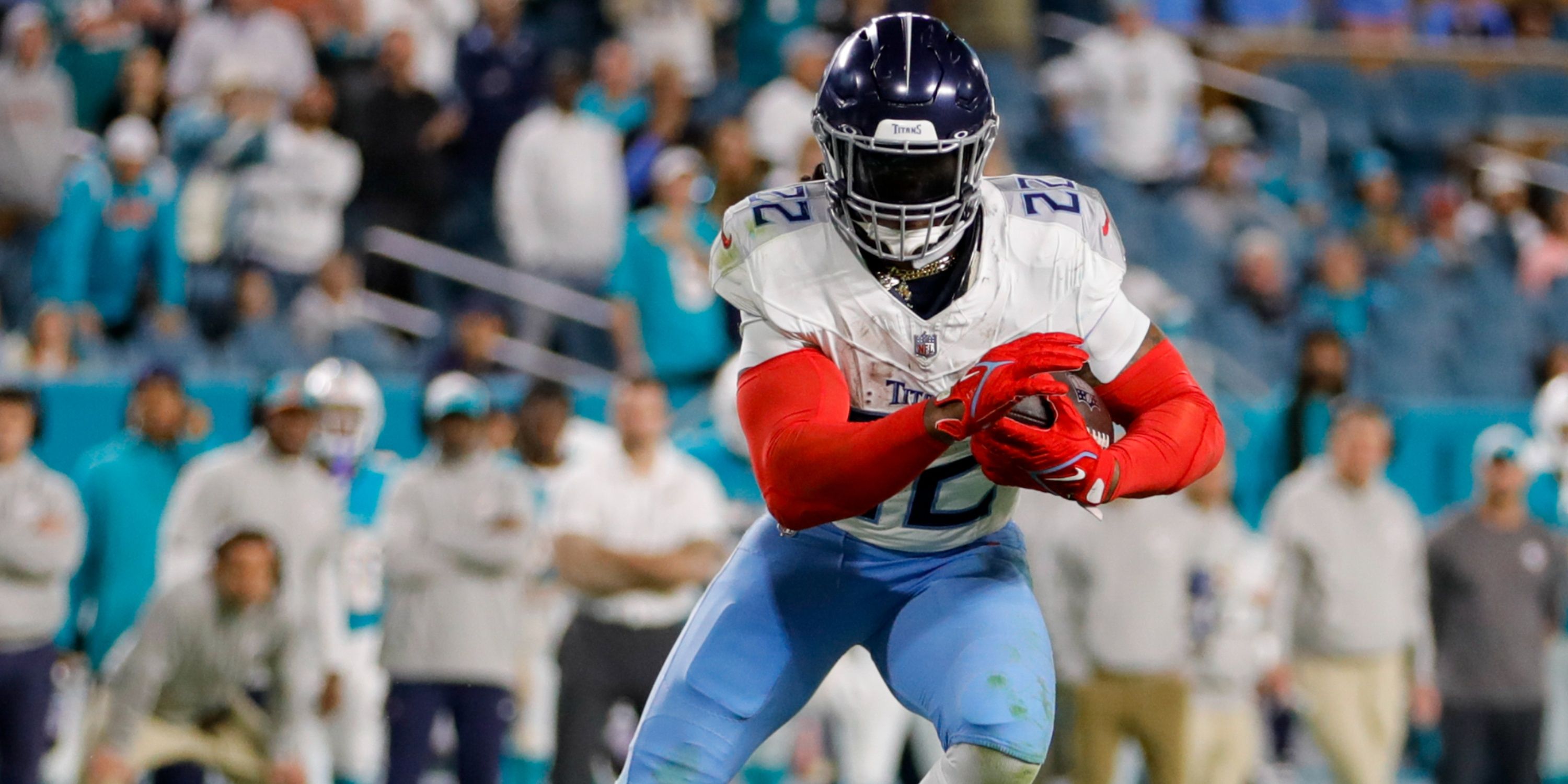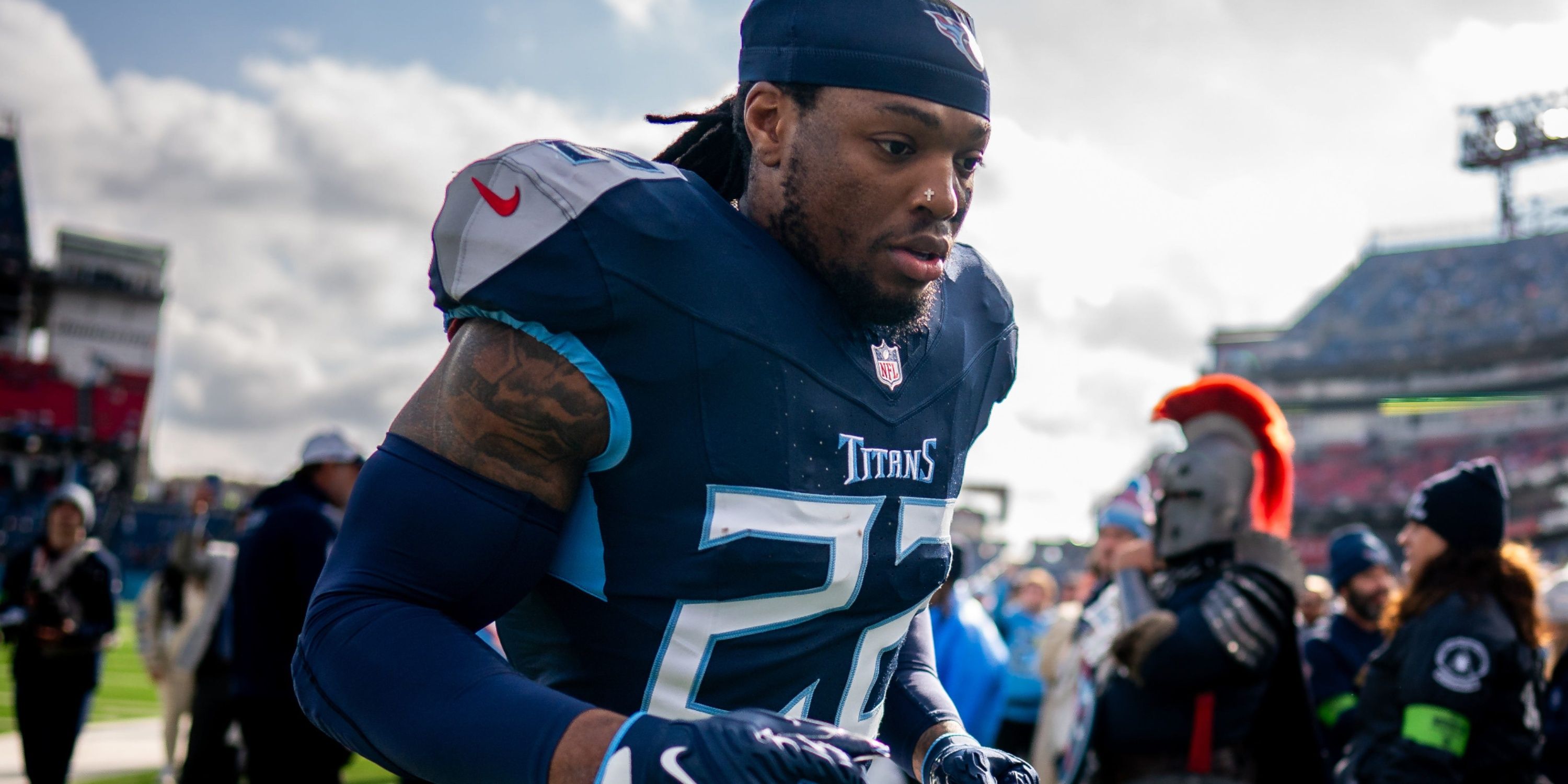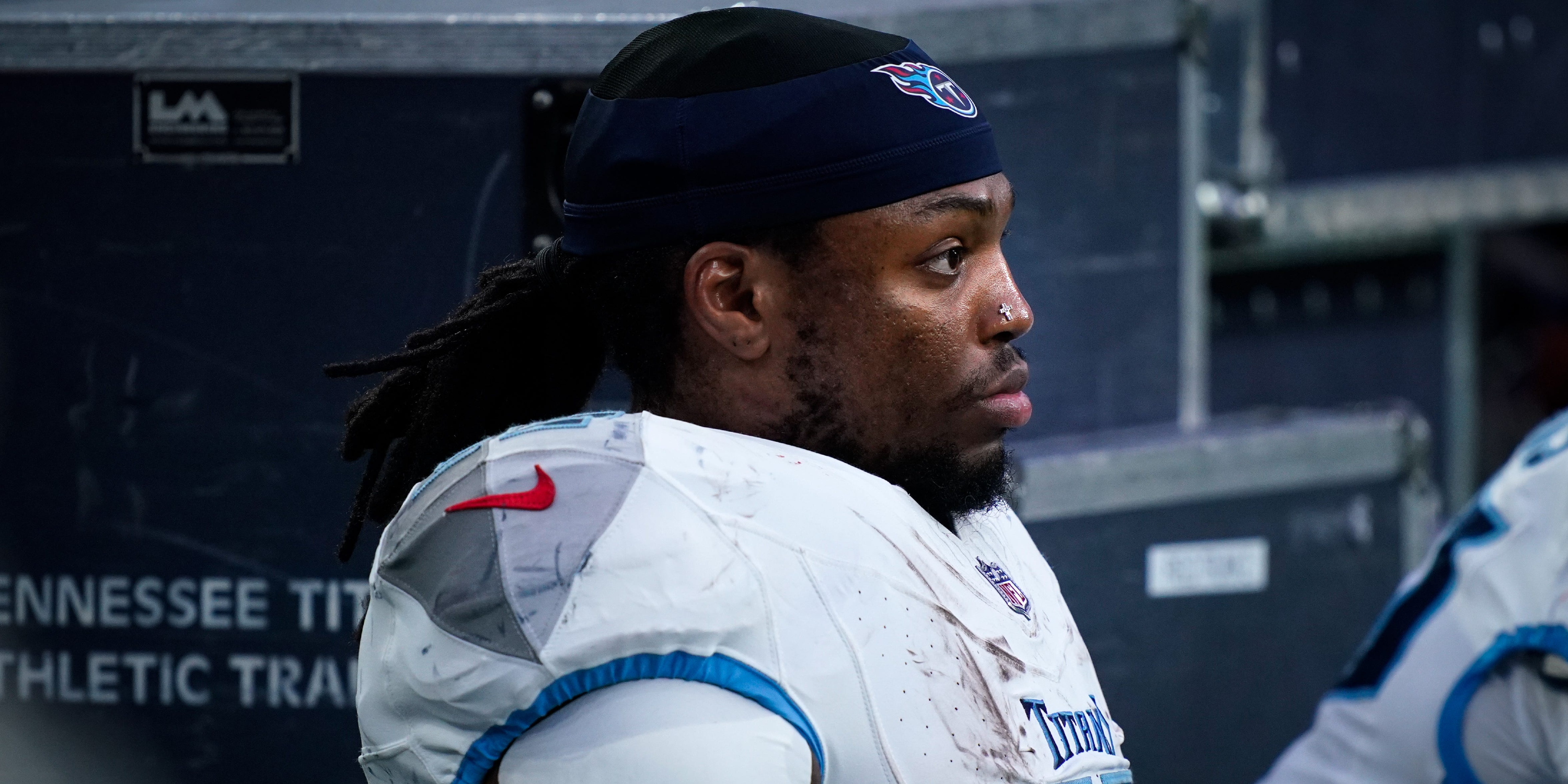Derrick Henry and Lamar Jackson, the NFL’s newest rush-attack tandem, should terrorize opposition defenses all season long in 2024.
On the second day of free agency, Derrick Henry, the former Offensive Player of the Year, was signed by the Baltimore Ravens to a two-year, $16 million contract that has incentives worth up to $20 million. After it was rumored that the Tennessee Titans were not interested in extending Henry’s contract, the two became quite close in the weeks before free agency.

The pairing of the league MVP and one of the best running backs of this generation is undoubtedly a showy move that will make headlines. Henry, though, provides much more than just star power; he fundamentally alters the nature of the Ravens’ rushing attack.
The Arrival of King Henry
Henry’s signing gives Baltimore’s rushing attack a new identity

The action suggests a change in the Ravens’ approach to team building. Baltimore’s offense has come to rely on a rushing assault led by a committee of runners.
This strategy was based on the idea that a dynamic rusher like Lamar Jackson at quarterback might have an excellent run game without the need for a real workhorse running back. The Ravens have consistently had one of the top rushing offenses in football, hence this notion has ultimately shown to be correct.
There are benefits to having a dominant runner like Henry, even though Baltimore has shown it doesn’t need an elite back. One reason is that Henry has a talent that the Ravens’ backfield hasn’t had in a long time. If Gus Edwards can be a useful member of the Ravens’ roster, imagine what a player like Henry, who has thrived under less than ideal circumstances, is capable of.
Second, Henry is the kind of back that can dominate contests. His brutal running style has the ability to penetrate defenses. Henry can be considered a one-man army at his best. The Ravens shouldn’t depend too heavily on this, especially during the regular season, but they’ll have it on hand just in case.
Although Henry is most recognized for his abilities as an inside runner, the Ravens have some flexibility because of his success with outside zone concepts. While it’s not as plentiful as it was in 2020, big-play potential is still there.







